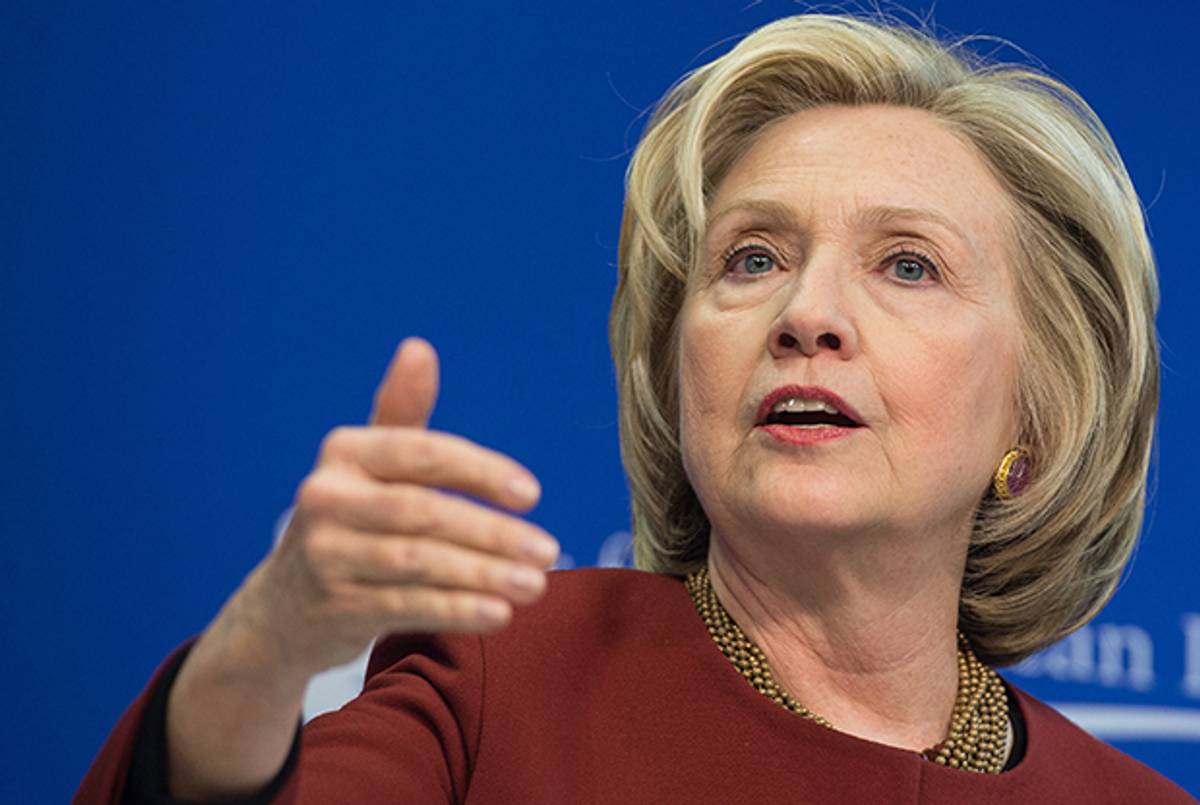
In a conversation with Malcolm Hoenlein, the executive vice chairman of the Conference of Presidents of Major American Jewish Organizations, Hillary Clinton made her first on-the-record comments about the current storm surrounding U.S.-Israel relations. Hoenlein initiated a phone call with Clinton on the subject, and with her permission released a statement summarizing their discussion. According to the statement, the presumed 2016 Democratic frontrunner suggested that “we need to all work together to return the special U.S.-Israel relationship to constructive footing, to get back to basic shared concerns and interests including a two-state solution pursued through direct negotiations between Israelis and Palestinians.”
Clinton’s words strike a subtle contrast with her former boss, President Obama, who has insisted that Prime Minister Benjamin Netanyahu is not interested in a two-state solution, and announced that the administration is “reassessing” the contours of its relationship with Israel. In gently pushing back against this, Clinton conveniently issued her comments through an intermediary, thus avoiding an open confrontation with the president.
Like her husband, Clinton has long been considered more warmly disposed towards Israel than President Obama, in addition to more hawkish on foreign policy in general. But one needn’t point to a political philosophy–or make veiled references to the influence of Jewish donors–to understand why she would seek to lower the temperature on U.S.-Israel tensions. That’s because avoiding public spats with Israel is good electoral politics for any national candidate. As Gallup’s annual poll of American attitudes toward Israel showed last month, 70 percent of Americans hold a favorable opinion of the Jewish state, close to a 20-year high. By contrast, only 17 percent hold a positive opinion of the Palestinian Authority.
With poll numbers like these, it’d be quite foolish for any candidate for the presidency to pick a fight with Israel. Doing so would open up a negative front against public opinion when such political capital could be better spent elsewhere. Crucially, 59 percent of independents hold favorable views of Israel, and they are the swing voters upon whom the election depends. Thus, there is little reason why Hillary–or any other mainstream 2016 candidate, Democrat or Republican–would seek to go against the tide.
These facts give cause for both comfort and concern to Israel advocates as they head into the 2016 campaign. On the one hand, robust public support for Israel ensures that politicians will continue to back the Jewish state for the foreseeable future, if only out of political self-interest. On the other hand, such sentiment gives politicians an incentive to pander to pro-Israel voters, even if they don’t actually mean it–which means electoral pledges of support are worth less than they appear, and may not necessarily reflect the true thinking of a candidate on the subject.
Yair Rosenberg is a senior writer at Tablet. Subscribe to his newsletter, listen to his music, and follow him on Twitter and Facebook.